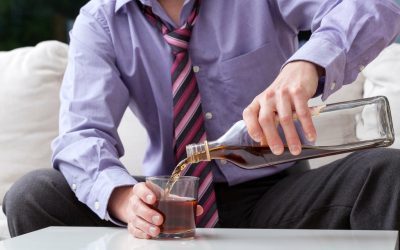However, we noted the lack of description of randomisation and allocation concealment methods in most of the included studies as a reason for downgrading because of the possibility of selection bias. It is recommended that there should be at least 10 studies reporting each of the subgroups in question. Among the 32 included studies, only four studies included hypertensive participants (Kawano 1992; Kawano 2000; Kojima 1993; Foppa 2002). So, it was not appropriate to conduct a separate meta‐analysis based on that population. We did not identify enough studies to construct a funnel plot for the outcomes under low doses of alcohol.
Van De Borne 1997 published data only
An October 2023 study in the journal Hypertension suggested that imbibing even one alcoholic beverage per day was linked to higher blood pressure than not drinking at all. Alcohol’s effects on blood pressure can range from temporary dips to chronic elevations that increase the risk of serious health problems. While a small glass of red wine might be part of a cultural does alcohol cause high blood pressure tradition or family dinner, it’s essential to consume alcohol mindfully, balancing any potential benefits with the very real risks. Staying aware of your blood pressure readings, adopting a healthy lifestyle, and seeking professional guidance if you suspect an alcohol-related disorder can help safeguard your cardiovascular health.
Medical
- As the body metabolizes alcohol, other mechanisms kick in that can lead to a rebound increase in blood pressure.
- Agewall 2000 measured blood pressure upon arrival of participants and did not measure blood pressure after the intervention.
- A slower metabolism also plays a role, as do medications — prescription, over-the-counter, even herbal remedies — that are common among older people.
- Alcohol acts as a vasodilator, meaning it relaxes the blood vessels and widens them.
Review authors included nine studies involving a total of 119 participants, and the duration of these studies was between four and seven days. Participants in those studies consumed alcohol regularly during the study period, whereas in our systematic review, we included only studies in which participants consumed alcohol for a short period. Based on nine studies, McFadden 2005 reported that the mean increase in SBP was 2.7 mmHg and in DBP was 1.4 mmHg.
2. Analysis.

Rybelsus tablets are used to improve blood sugar control in adults with type 2 diabetes, and may … Always consult your healthcare provider to ensure the information displayed on this page applies to your Drug rehabilitation personal circumstances. They might also be used to treat other non-heart conditions like migraine headache or essential tremor.

Short-Term Effects
Furthermore, alcohol can directly damage the inner lining of blood vessel walls, making them less elastic and more prone to narrowing. This combination of factors forces the heart to work harder to pump blood, ultimately leading to persistently elevated blood pressure. This long-term effect is the opposite of the common misconception that alcohol lowers blood pressure. Up to 16% of individuals diagnosed with high blood pressure may have developed the condition due to heavy drinking.
Sure, alcohol might be a good sedative, but it could lead to you waking up multiple times in the middle of the night. Excessive alcohol consumption could lead to the inflammation of the pancreas, also known as pancreatitis, causing other health conditions which affect systems such as the central nervous system and the digestive system. Red wine rose in popularity after studies suggested that it could reduce blood pressure levels because of the antioxidants in fermented grapes. A standard drink contains 10g of pure alcohol and is equivalent to 2/3 can of beer (220ml), a glass of wine (100ml), or a nip (30ml) of spirits.
Tinklenberg 1976 published data only
We classified the remaining studies as having high risk of bias because the protocol was not registered and the study identifier was not reported. Therefore, it is difficult to determine a priori selection of primary and secondary outcome measures for the included studies. Different types of alcoholic beverages including red wine, white wine, beer, and vodka were used among 32 studies. The dose of alcohol ranged between 0.35 mg/kg and 1.3 g/kg, and alcohol was consumed over five minutes and over one hour and 30 minutes. It is important to note that the dose of alcohol was comparatively higher (≥ 60 g or ≥ 1 g/kg) in nine studies (Bau 2005; Buckman 2015; Hering 2011; Narkiewicz 2000; Rosito 1999; Rossinen 1997; Stott 1987; Van De Borne 1997; Zeichner 1985).

- Many heart or blood pressure medicines are extended-release or sustained-release, which means the medicine is more slowly released into your blood stream.
- This temporary spike occurs because alcohol stimulates the nervous system and affects the balance of hormones that help regulate blood vessel tone and kidney function.
- Unfortunately, we found no studies measuring HR more than six hours after the dose.
- The magnitude and direction of the effects of alcohol on blood pressure depend on the time after alcohol consumption.
- For medium doses and high doses of alcohol, participants represented a range in terms of age, sex, and health condition.
Often called the “silent killer,” high blood pressure typically shows no symptoms until a severe event occurs, making regular blood pressure readings crucial for early detection. High‐dose alcohol consumption increased HR by approximately 6 bpm in participants, and the effect lasted up to 12 hours. Even though these studies reported that participants were randomised to receive alcohol or placebo, the method of randomisation was not mentioned.
It’s important to check with your doctor before you start drinking alcohol after heart surgery. If you have already been diagnosed with a heart condition, speak to your doctor about whether it’s safe for you to drink alcohol. Other foods including grapes, blueberries and strawberries provide the same antioxidants without the negative https://ecosoberhouse.com/ effects of alcohol. However, alcohol can also temporarily increase your heart rate or cause heart palpitations. This means drinking very large amounts all at once can slow your heart rate and breathing to a dangerously low level.